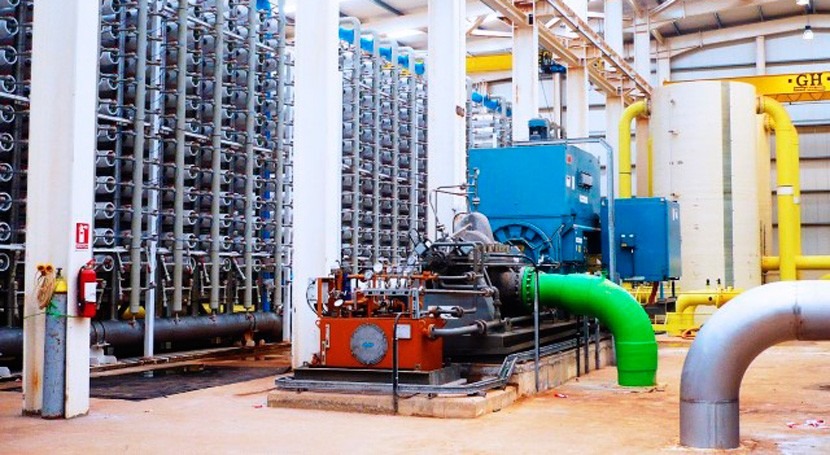Algeria's Ténès desalination plant, built by Abengoa, produces 200 million m3 of drinking water
- Abengoa developed the plant and carries out its operation and maintenance since 2015.
The Ténès desalination plant, in Algeria, built by Abengoa (MCE: ABG/P:SM), the international company that applies innovative technology solutions for sustainability in the infrastructures, energy and water sectors, has reached 200 million cubic meters of produced drinking water.
The plant built by Abengoa with reverse osmosis technology and with a capacity of 200,000 m3/d started its commercial operation in February 2015. Since then, Abengoa is in charge of its operation and maintenance, which will be carried out by the company for a period of 25 years.
The plant supplies the city of Wilaya de Chlef, in the north-west of the country, some 200 km west of Algiers, on the Mediterranean coast, thus helping to counter the water scarcity problems in this area.
In addition, the plant features a system to generate electricity sustainably by taking advantage of the brine surplus in the reverse osmosis process, which allows the facility’s energy consumption to be reduced. Another environmental innovation that has been introduced by this plant is the CO2 production equipment from natural gas for the remineralization of the water prior to entering the water grid. This makes the water less corrosive after the reverse osmosis process.
Ténès is the third desalination plant that Abengoa has built in Algeria, together with Skikda (100,000 m3/day, operating since 2009) and Honaine (200,000 m3/day, completed in 2011). All three of them together produce 500,000 m3/day of drinking water for the country, which is enough to supply a population of 2.5 million people. Abengoa has become a reference in the desalination sector having built plants that, when added together, have a total capacity of more than 1.5 million m3/day.













